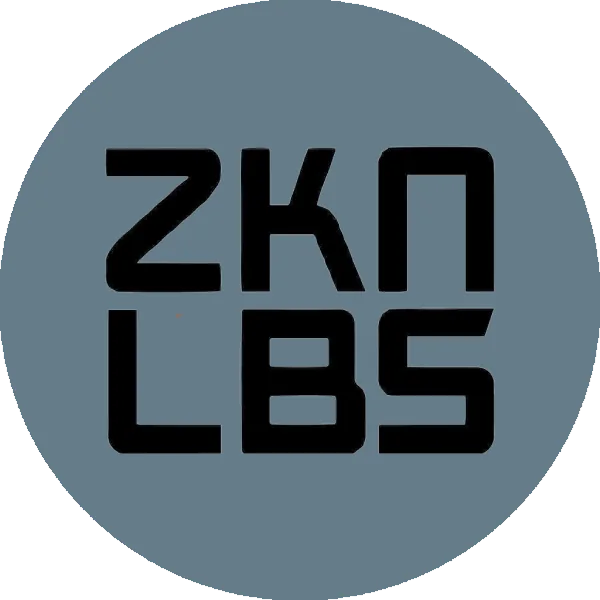A Beginner's Guide to the Popular Cryptocurrency
Ethereum has emerged as one of the most prominent cryptocurrencies in the digital world. Created by Vitalik Buterin in 2015, Ethereum offers a decentralized platform for building and executing smart contracts, but who owns most Ethereum? Suppose you're new to the world of cryptocurrencies and want to understand what makes Ethereum unique. In that case, this beginner's guide will provide you with essential insights.
What is Ethereum?
Unlike Bitcoin, which primarily serves as digital currency, Ethereum goes beyond being just a medium of exchange. It is an open-source blockchain platform that enables developers to create and deploy decentralized applications (dApps) using smart contracts. These smart contracts are self-executing agreements with predefined rules and conditions that automatically execute once the requirements are met.
The Potential of Ethereum's Blockchain Technology
Ethereum's blockchain technology opens up many possibilities beyond traditional financial transactions. It enables the development of decentralized applications across various industries, including finance, supply chain, gaming, and more. By leveraging Ethereum's platform, developers can build innovative solutions that enhance transparency, security, and efficiency. So, who owns most Ethereum?
Exploring the Uses and Applications of Ethereum
Ethereum's versatility extends to its numerous use cases. Some popular applications include:
Decentralized Finance (DeFi)
Ethereum has become the foundation for the booming DeFi industry, providing financial services such as lending, borrowing, and trading without intermediaries.
Non-Fungible Tokens (NFTs)
Ethereum's blockchain has facilitated the rise of NFTs, unique digital assets representing ownership of digital art, collectibles, and virtual real estate.
Supply Chain Management
Ethereum's transparent and immutable ledger enables traceability and accountability in supply chain networks, reducing fraud and enhancing efficiency.
Gaming and Virtual Worlds
Ethereum enables the creation of virtual economies within gaming platforms, allowing players to trade, own, and monetize in-game assets securely.
As Ethereum continues to evolve, new use cases and applications are constantly being explored and developed. So, who owns most of Ethereum?
Unveiling the Top Ethereum Whales: Who owns most Ethereum?
So, who owns most Ethereum? Ethereum, like many cryptocurrencies, has its fair share of large holders known as "whales." These individuals or entities possess significant amounts of ETH, and their actions in the market can substantially impact Ethereum's price and overall ecosystem. We'll delve into the world of Ethereum whales, unveil some of the biggest ETH holders, and explore the implications of their holdings.
Defining Ethereum Whales and Their Significance
Ethereum whales are individuals or organizations that hold substantial quantities of ETH, but who owns most Ethereum? These whales often have the power to influence market sentiment and volatility due to the sheer volume of their holdings. Their buying or selling activities can trigger significant price movements and create ripples across the Ethereum community.
The Impact of Whale Activity on Ethereum's Market Dynamics

Ethereum whales' actions can have positive and negative effects on the market. Whales engaging in large-scale selling can lead to price drops and increased market volatility. Conversely, their buying activities can create upward price pressure and instill confidence in the market. Understanding whale behavior is essential for traders and investors to anticipate potential market trends and make informed decisions.
The Distribution of Ethereum Ownership
So, who owns most Ethereum? Despite the presence of whales, Ethereum's ownership is relatively dispersed compared to other cryptocurrencies. The distribution of ETH among a diverse set of holders contributes to the decentralization and resilience of the Ethereum network. Examining ownership patterns can provide insights into the overall health and stability of the ecosystem.
Ethereum's Growing Influence: Impact of Institutional Adoption
In recent years, institutional investors have been increasingly drawn to Ethereum, recognizing its potential as a transformative technology and a viable investment asset. The entry of large financial institutions into the Ethereum ecosystem has significant implications for its landscape and the overall market dynamics. Let's delve into the rising interest of institutional investors in Ethereum and explore how their involvement influences cryptocurrency ownership.
Exploring the Growing Interest of Institutional Investors
Institutional investors, such as hedge funds, asset management firms, and pension funds, are allocating substantial capital to cryptocurrencies, including Ethereum. This growing interest is driven by several factors, including recognizing cryptocurrencies as an alternative asset class and the desire to diversify portfolios. Institutional investors are attracted to the potential high returns offered by Ethereum, as well as its underlying blockchain technology. So, who owns most Ethereum?
Implications for Ethereum Ownership
The participation of institutional investors in Ethereum introduces a new wave of capital and liquidity into the market. With their substantial resources, these investors can significantly impact the ownership landscape. Institutional ownership often results in more prominent positions being held by a smaller number of entities, potentially leading to an increased concentration of ETH among institutional investors.
Influence on Market Volatility and Price Stability
The entry of institutional investors can have a stabilizing effect on Ethereum's price and reduce market volatility. Their long-term investment strategies and more significant market presence may mitigate extreme price fluctuations associated with retail investor sentiment. Institutional investors often adopt a more measured and strategic approach, which can lead to smoother market movements.
Regulatory Considerations and Institutional Confidence
The involvement of institutional investors also brings heightened regulatory scrutiny and compliance requirements. Regulatory clarity and a supportive legal framework are essential for institutional adoption to flourish. As institutional investors gain confidence in Ethereum's regulatory environment, their engagement can further enhance the credibility and acceptance of the cryptocurrency.
Evolving Institutional Infrastructure and Services
The growing interest of institutions in Ethereum has led to specialized infrastructure and services tailored to their needs. Custody solutions, institutional-grade trading platforms, and financial products centered around Ethereum have emerged to cater to institutional demand. These developments contribute to the maturation of the Ethereum ecosystem and make it more accessible to institutional investors.
So, who owns most Ethereum? The increasing presence of institutional investors in Ethereum signifies a significant milestone in its journey toward mainstream adoption. While their involvement brings newfound stability and credibility to the market, it also raises questions about decentralization and the concentration of ownership. Understanding the implications of institutional adoption is crucial for comprehending the future trajectory of Ethereum and its relationship with other stakeholders.
Revealing the Identities of the Largest Ethereum Holders
While the identities of many Ethereum whales remain anonymous, there are instances where the ownership of significant ETH holdings is public knowledge. So, who owns most Ethereum? Let's take a closer look at some of the biggest ETH holders:
Vitalik Buterin - 240,00 ETH
As the co-founder of Ethereum, Vitalik Buterin holds a significant amount of ETH. His theoretical contributions to the Ethereum ecosystem have played a pivotal role in its growth and development.
Beacon chain contract - 18 Million ETH
The Beacon chain contract, a fundamental component of Ethereum's transition to Ethereum 2.0, holds a substantial amount of ETH. It serves as a mechanism for securing the network and staking ETH.
Binance - 4.4 Million ETH
One of the largest cryptocurrency exchanges, Binance, also holds significant ETH. As a trusted platform for trading and storing cryptocurrencies, Binance's ETH holdings contribute to liquidity and market stability.
Securely Managing Ethereum: The Ultimate Crypto Debit Card Solution
In the world of cryptocurrencies, security and convenience are of utmost importance. At PlasBit, we offer a comprehensive solution for securely managing Ethereum and other digital assets through our innovative crypto debit cards and wallets. Let's explore how our services provide a safe, user-friendly, confidential way to hold and utilize cryptocurrencies.
Your Gateway to Secure Crypto Management
At PlasBit, we offer a range of crypto debit cards designed to simplify using cryptocurrencies in everyday transactions. With them, you can seamlessly convert your digital assets into fiat currencies, allowing you to spend them like traditional money.
Easy Conversion
With our exchange, you can instantly convert your Ethereum into your preferred fiat currency, such as USD, EUR, or GBP. It enables you to use your crypto assets for everyday purchases, whether online or at physical stores.
Secure Storage
Our state-of-the-art security measures protect your crypto holdings. Your cryptocurrency is securely stored in encrypted cold wallets, minimizing the risk of unauthorized access and potential losses.
Global Acceptance
Our Visa cards are widely accepted, allowing you to use your Ethereum to make purchases and withdraw cash from ATMs in numerous locations worldwide. This global acceptance expands the usability and accessibility of your holdings.
Leveraging for Secure and Confidential Cryptocurrency Transactions
By utilizing our services, you can enjoy the benefits of securely holding Ethereum while having the freedom to spend it conveniently. Whether purchasing goods and services, traveling abroad, or simply accessing your funds, our platform's user-friendly interface and seamless integration make managing your Ethereum effortless.
At PlasBit, we understand the importance of combining security, and usability when managing cryptocurrencies. With our wallets and cards, you can confidently navigate the world of Ethereum, knowing that your assets are protected while maintaining your financial privacy.
As the crypto industry continues to evolve, solutions like our platform play a vital role in providing individuals with the means to hold, transfer, and utilize cryptocurrencies in a secure and user-friendly manner. Embrace the future of crypto management with our innovative platform and experience the convenience and peace of mind it offers.
In conclusion, Ethereum has established itself as a prominent cryptocurrency, offering a decentralized platform for building smart contracts and enabling innovative decentralized applications. As we have explored, understanding the ownership landscape of Ethereum is crucial in comprehending its market and ecosystem dynamics.
We delved into the world of Ethereum whales, the significant holders of ETH whose actions can significantly influence market sentiment and volatility. While their presence may raise concerns about the concentration of ownership, Ethereum's overall distribution remains relatively dispersed, contributing to the decentralization and resilience of the network.
Furthermore, we examined the growing interest of institutional investors in Ethereum. Their entry into the market signifies a significant milestone in the cryptocurrency's journey toward mainstream adoption. The involvement of institutions brings newfound stability, liquidity, and credibility to the market. However, it also questions the balance between decentralization and institutional influence.







